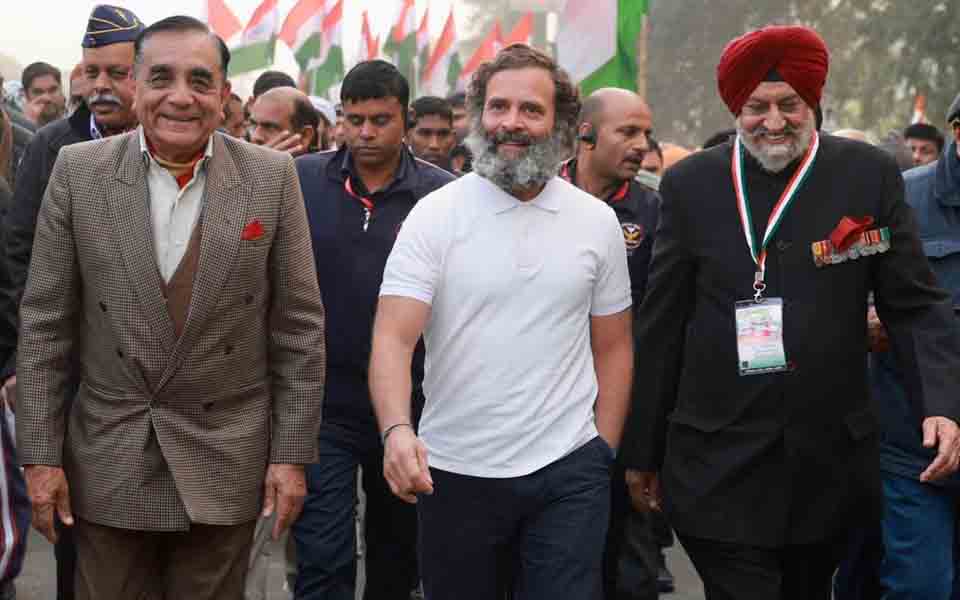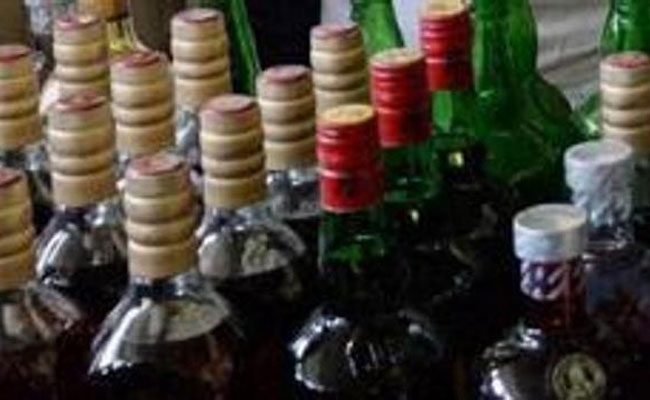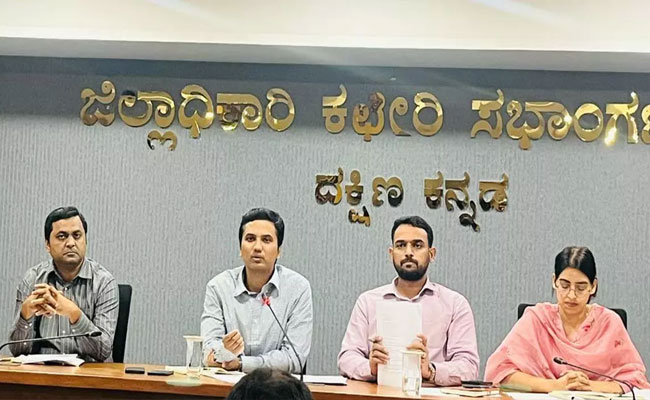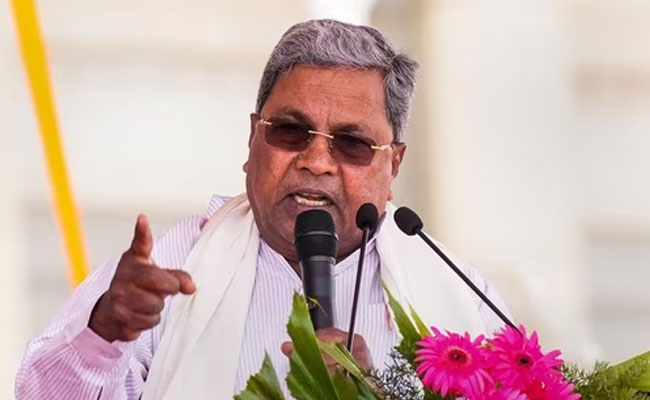Kurukshetra (Haryana), Jan 8: Former Army chief Gen Deepak Kapoor and many retired top officers of the defence services joined the Rahul Gandhi-led 'Bharat Jodo Yatra' on Sunday which is passing through Haryana.
Amid severe cold and fog, the march resumed in the morning from Dodwa in Karnal's Nilokheri region and entered the Kurukshetra district later in the day. Scores of people joined the Yatra as it passed through Karnal in the morning, which is also the home constituency of Chief Minister Manohar Lal Khattar.
Senior party leaders Bhupinder Singh Hooda, Randeep Singh Surjewala and Kumari Selja are part of the Yatra in its Haryana leg.
"Ex-COAS (chief of Army staff) Gen Deepak Kapoor, Lt Gen R K Hooda, Lt Gen VK Narula, AM (air marshal) PS Bhangu, Maj Gen Satbir Singh Chaudhary, Maj Gen Dharmender Singh, Col Jitender Gill, Col Pushpender Singh, Lt Gen DDS Sandhu, Maj Gen Bishamber Dayal, Col Rohit Chaudhry join @RahulGandhi at the Bharat Jodo Yatra," the Congress tweeted.
The march covered over 130 km in its first leg in Haryana from December 21 to 23, passing through Nuh, Gurugram and Faridabad districts. It re-entered Haryana's Panipat Thursday evening from Uttar Pradesh.
The yatra, which started from Kanyakumari in Tamil Nadu on September 7, will end after reaching Srinagar by January 30 with Gandhi hoisting the national flag there. The march has so far covered Tamil Nadu, Kerala, Karnataka, Andhra Pradesh, Telangana, Maharashtra, Madhya Pradesh, Rajasthan, Delhi and Uttar Pradesh.
Ex-COAS Gen Deepak Kapoor, Lt Gen RK Hooda, Lt Gen VK Narula, AM PS Bhangu, Maj Gen Satbir Singh Chaudhary, Maj Gen Dharmender Singh, Col Jitender Gill, Col Pushpender Singh, Lt Gen DDS Sandhu, Maj Gen Bishamber Dayal, Col Rohit Chaudhry join @RahulGandhi at the #BharatJodoYatra pic.twitter.com/giKo7DuKd6
— Congress (@INCIndia) January 8, 2023
Let the Truth be known. If you read VB and like VB, please be a VB Supporter and Help us deliver the Truth to one and all.
Belagavi (Karnataka) (PTI): The Karnataka Excise Department has conducted a statewide crackdown on illegal liquor trade over the last two years, resulting in arrests and seizures of alcohol, Karnataka Excise Minister R B Timmapur said on Tuesday.
As many as 1,09,017 people were arrested, and seizures included 13.66 lakh litres of liquor and 27.19 lakh litres of beer, he said in a written reply to a starred question by Harihar BJP MLA B P Harish in the Karnataka Assembly.
The Minister said the enforcement drive covered the financial year 2023–24, 2024–25 up to June, and 2025–26 from July to October, targeting unauthorised liquor manufacture, storage, sale and transportation across the State.
"During this period, statewide enforcement drives resulted in a total of 1,84,570 raids against illegal liquor sales,” Timmapur said.
ALSO READ: BJP accuses Karnataka govt of 'failing' to prevent noise pollution caused by 'azaan'
He noted that 9,179 non-bailable cases and 91,968 bailable and compoundable cases under Section 15(A) of the Karnataka Excise Act, 1965, were registered during the same period.
According to him, there have been no reports indicating that students have become addicted to alcohol due to illegal liquor sales.
The sale of alcohol to minors is strictly prohibited under the Karnataka Excise Act, 1965, and the department has issued periodic instructions to initiate legal action against violators, with strict enforcement and investigation measures in place, the Minister said.
Excise officials are carrying out regular road and night patrols, collecting intelligence, monitoring habitual offenders and conducting raids to identify illicit distillation units, unauthorised liquor outlets and spurious liquor manufacturing centres, he said, adding the department is also enforcing the law to prevent the production, storage, sale and transport of spurious, non-duty-paid and unauthorised liquor.
Regular patrols are being conducted on national and state highways, with suspicious vehicles being subjected to checks.
At the district level, standing committee meetings are held under the chairmanship of Deputy Commissioners, and joint operations are carried out with the police and forest departments to curb excise-related offences.
The department is also conducting awareness programmes through Gram Sabhas and in schools and colleges to educate the public and students about the physical, mental and social health hazards associated with alcohol addiction and substance abuse, Timmapur added.





